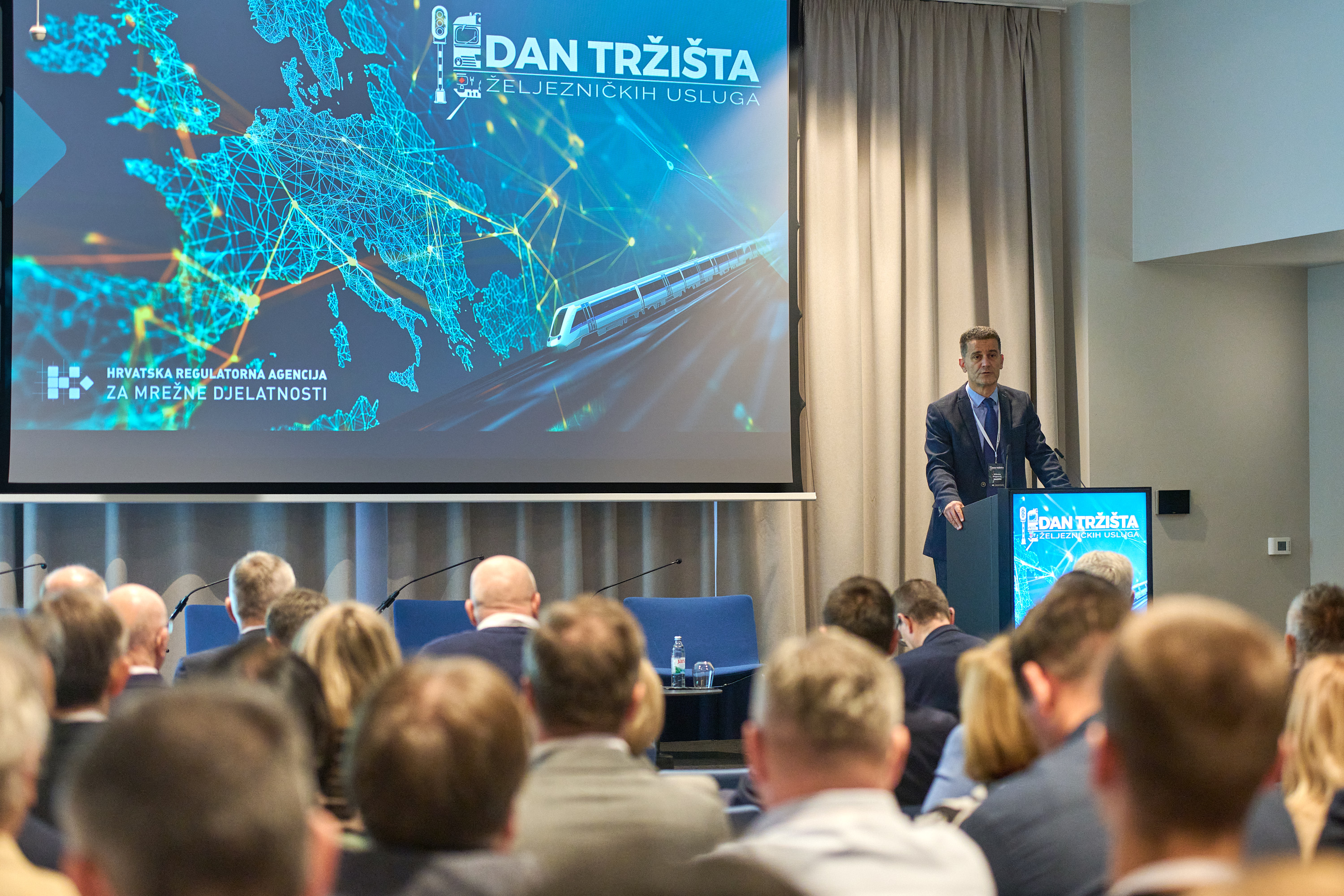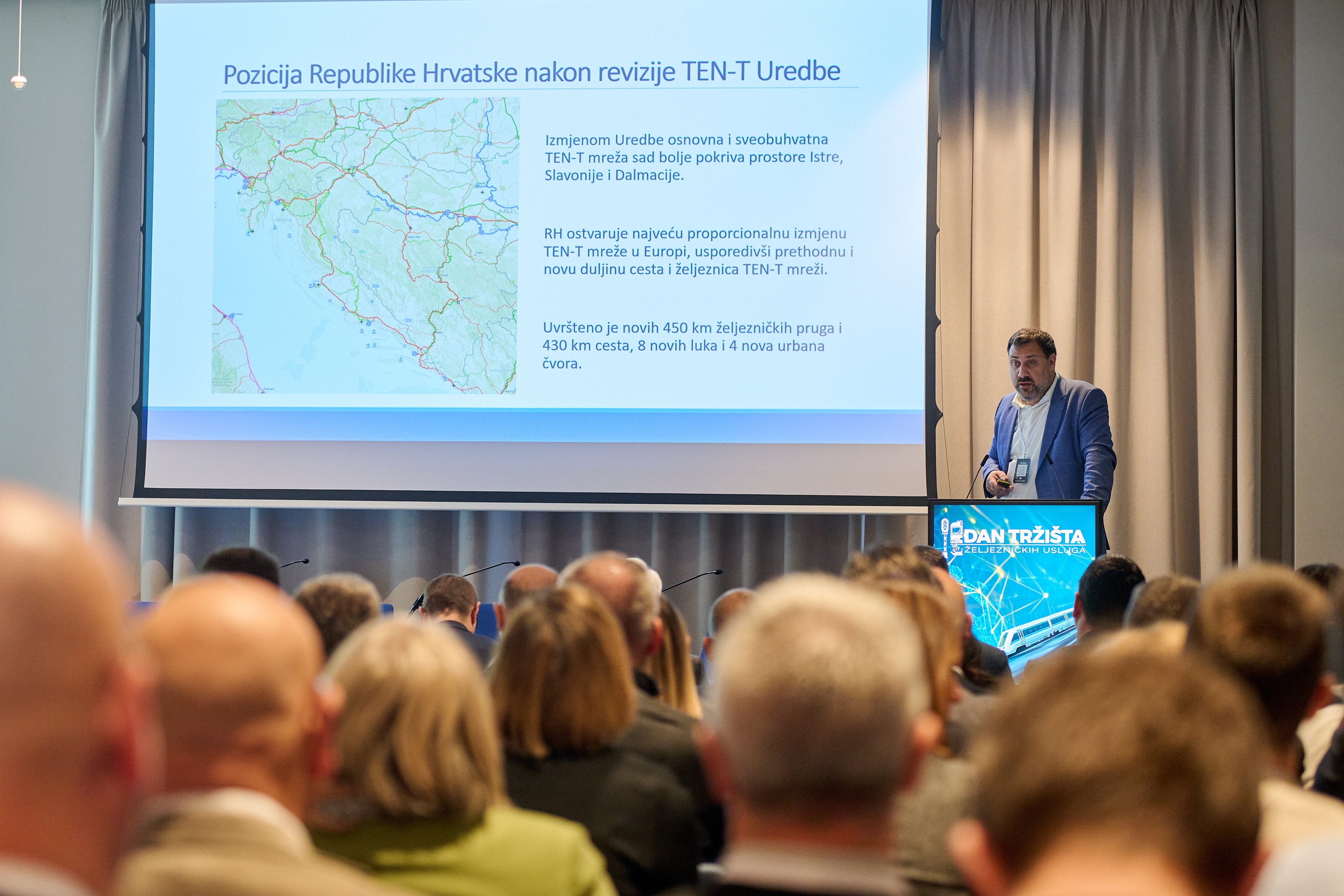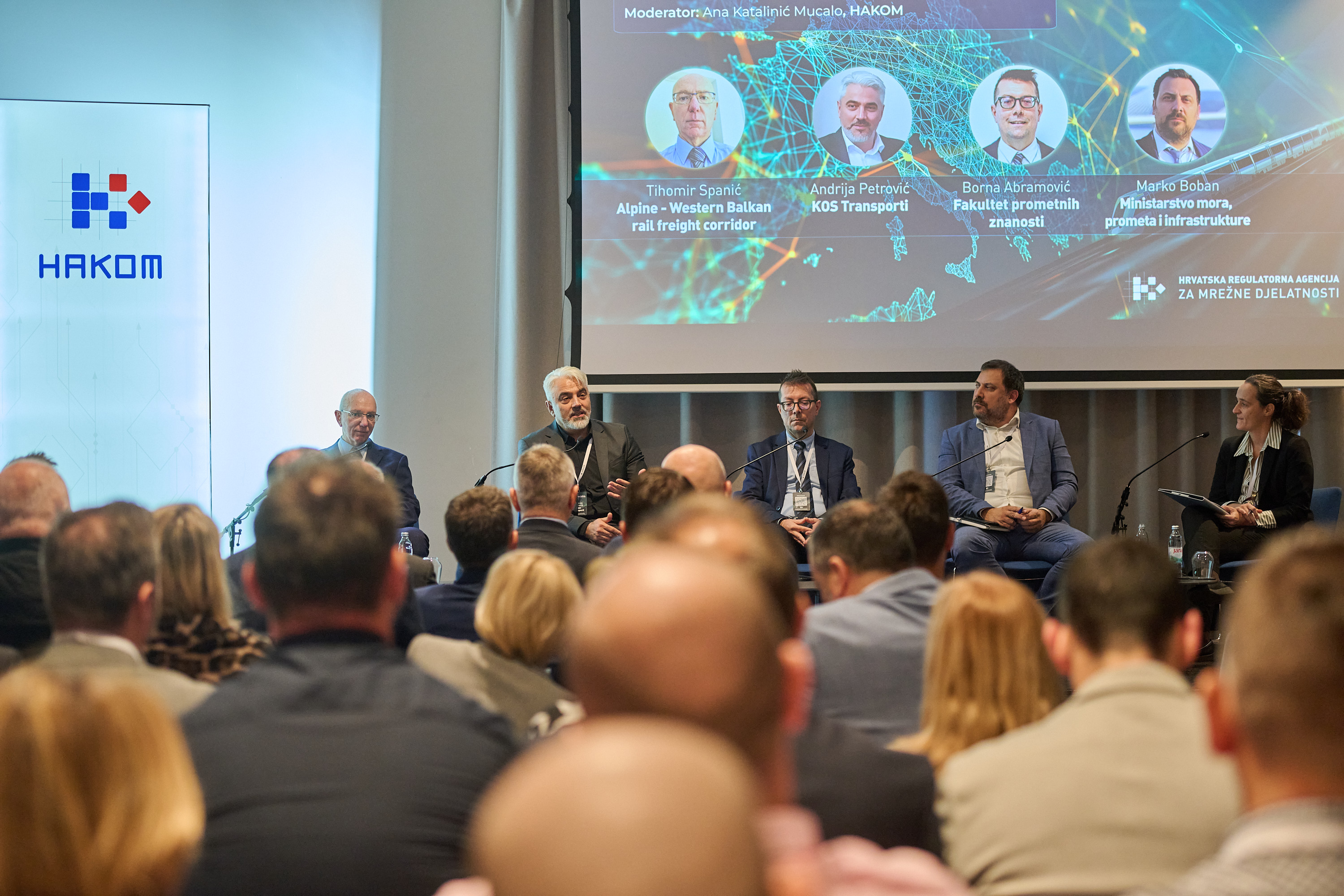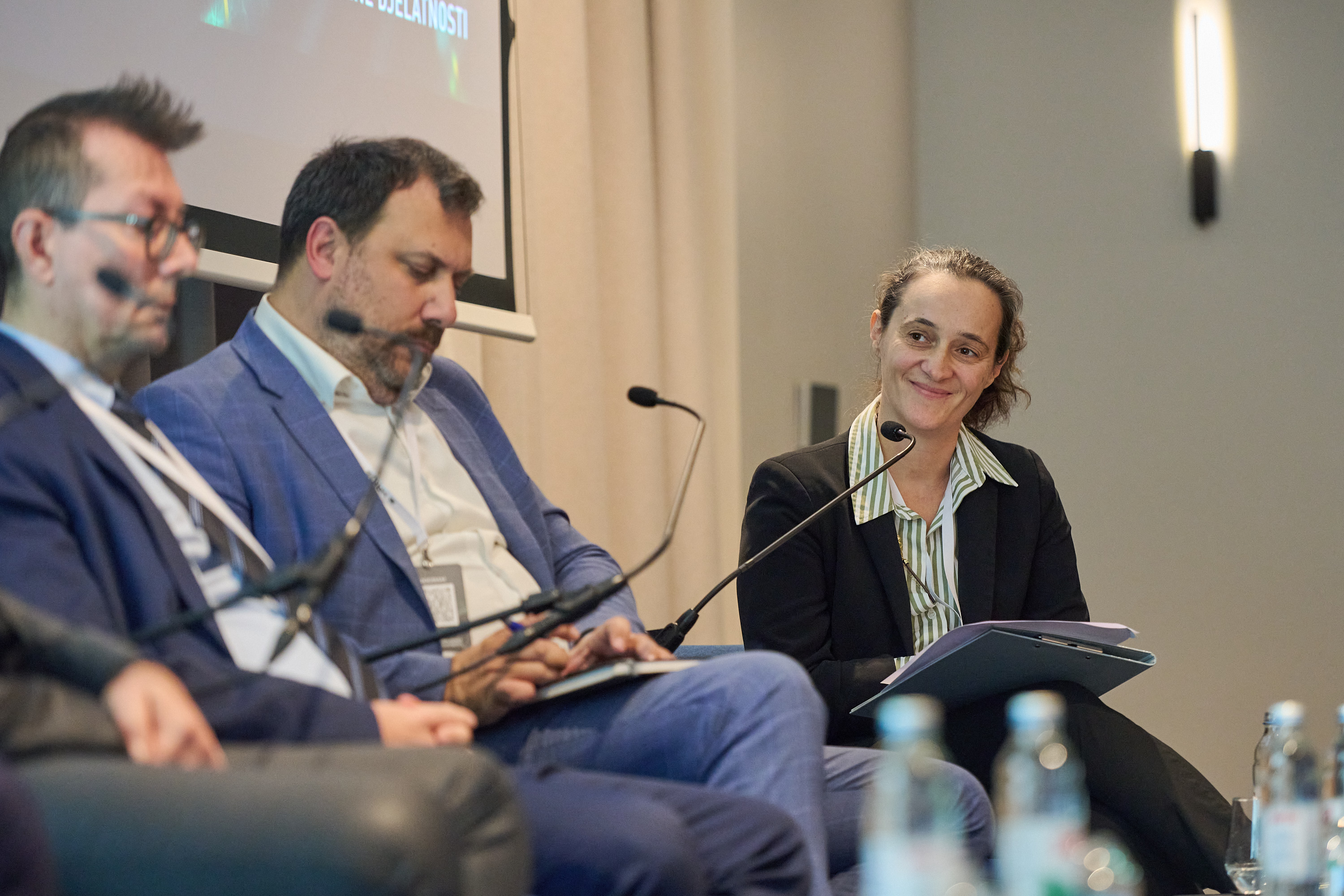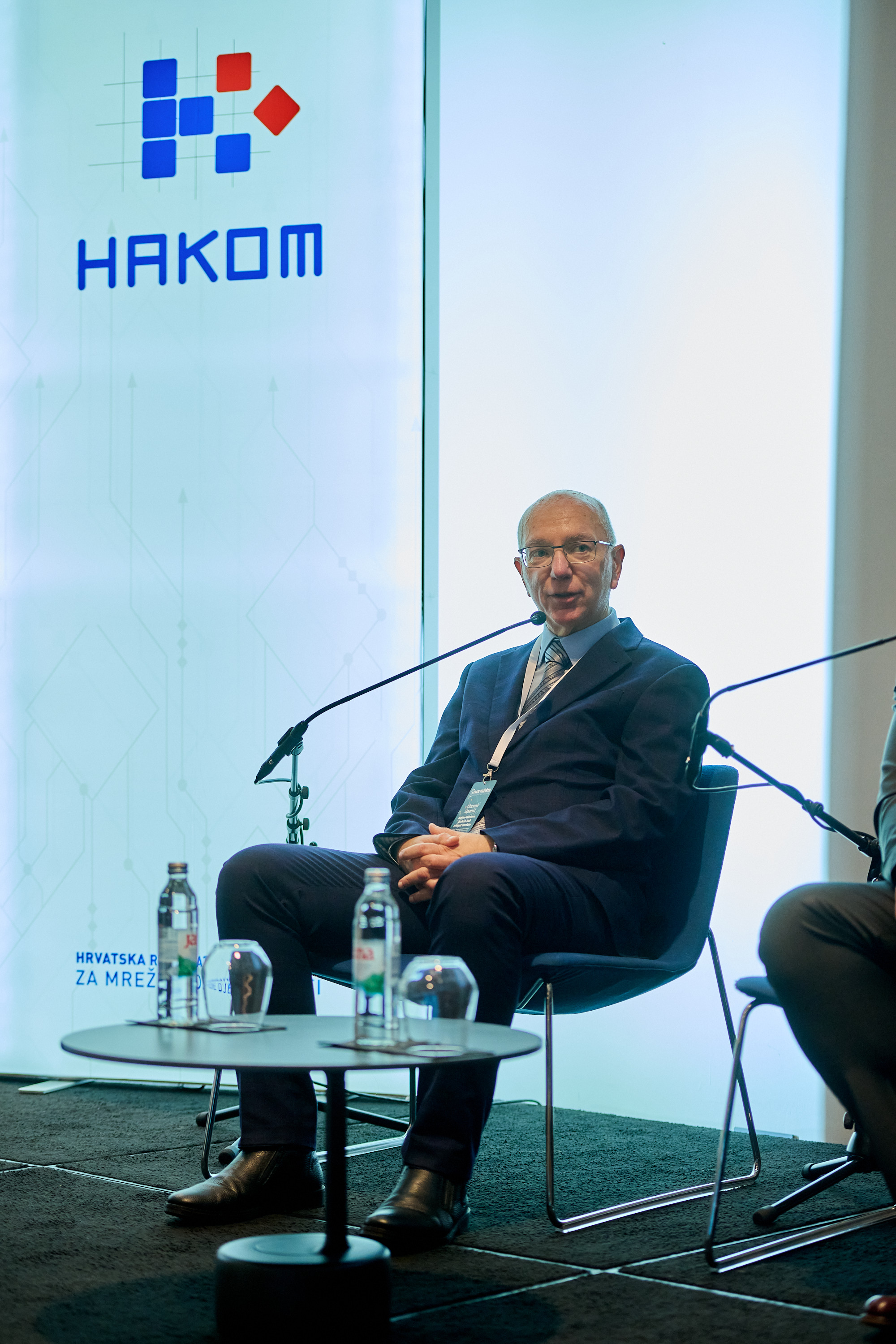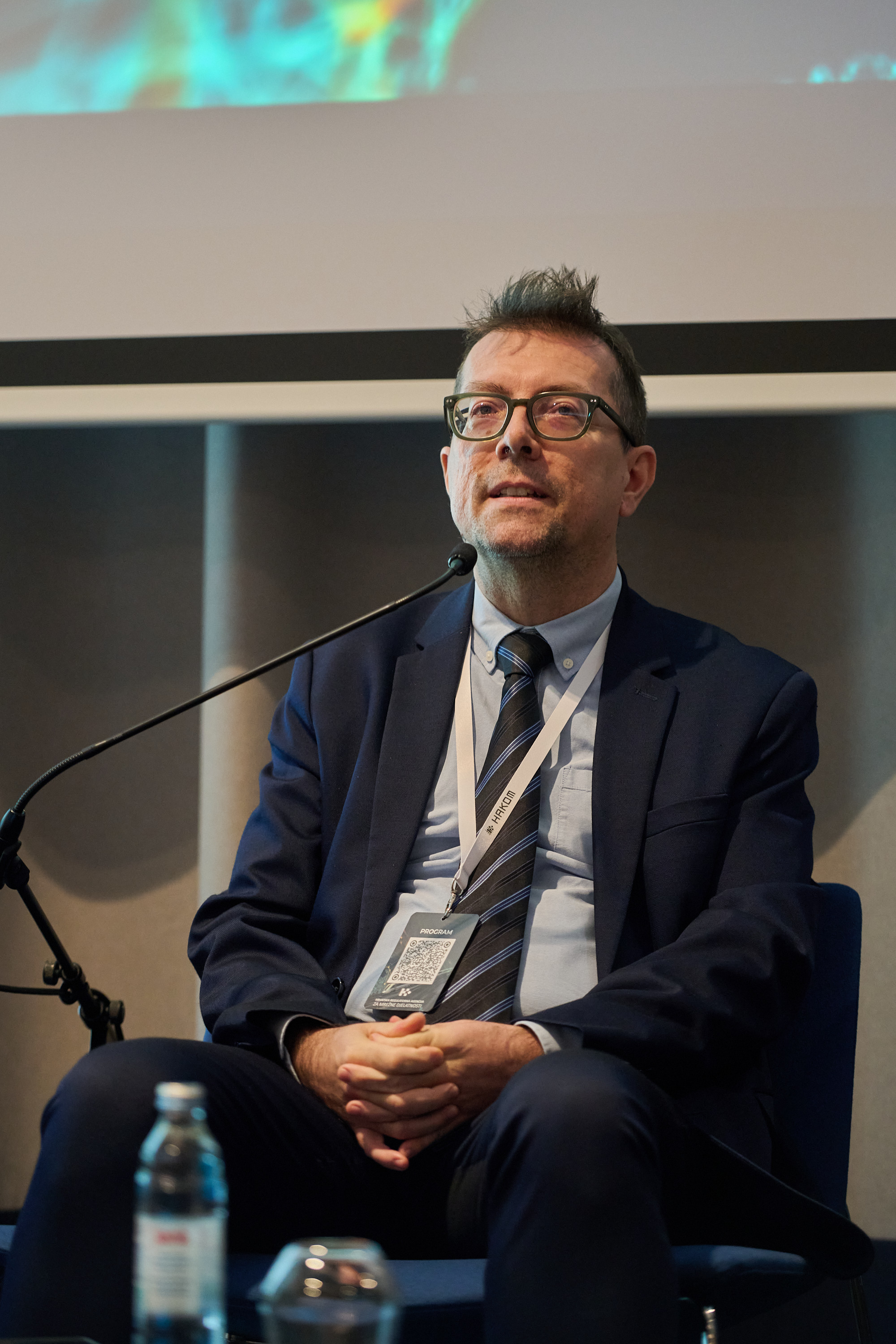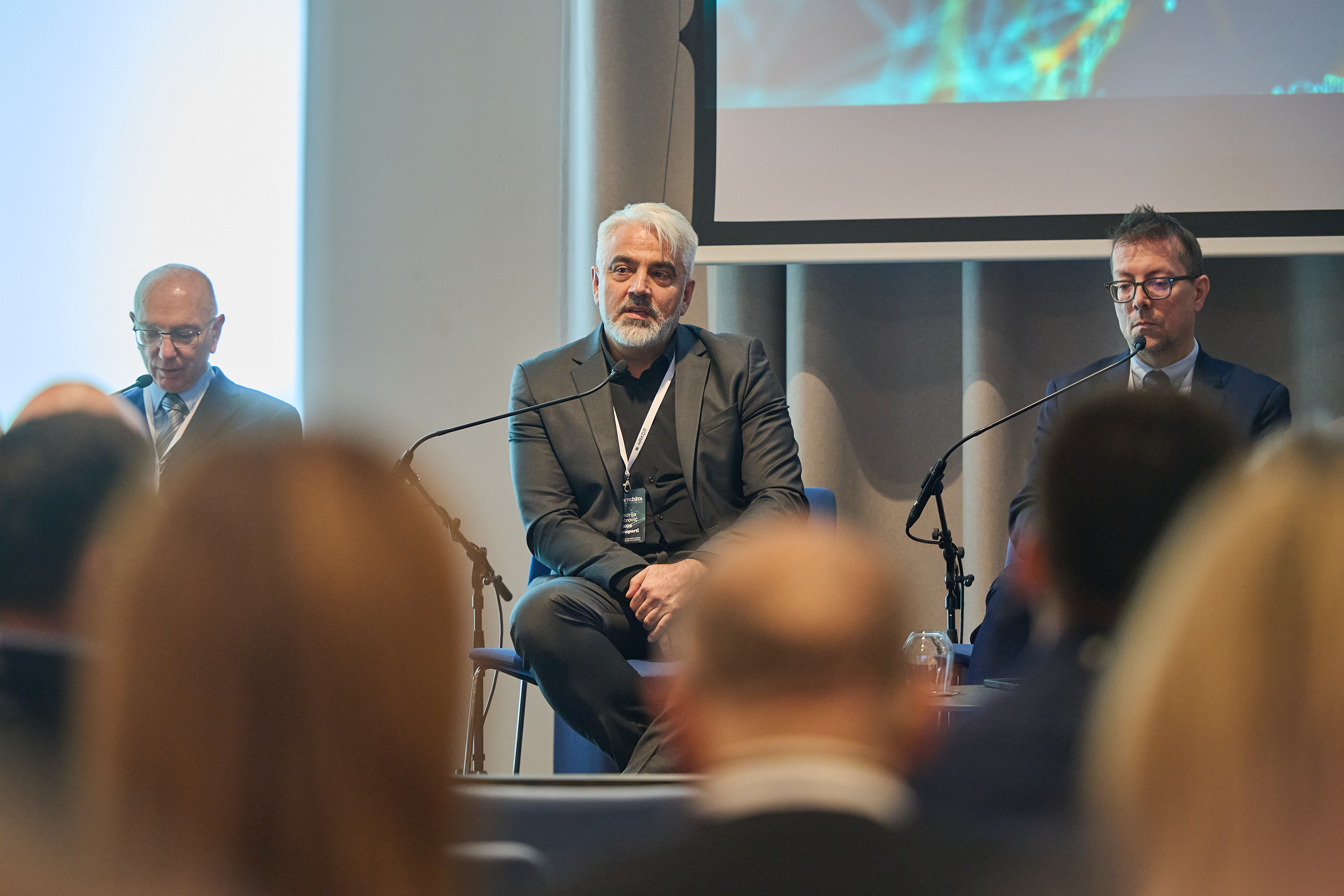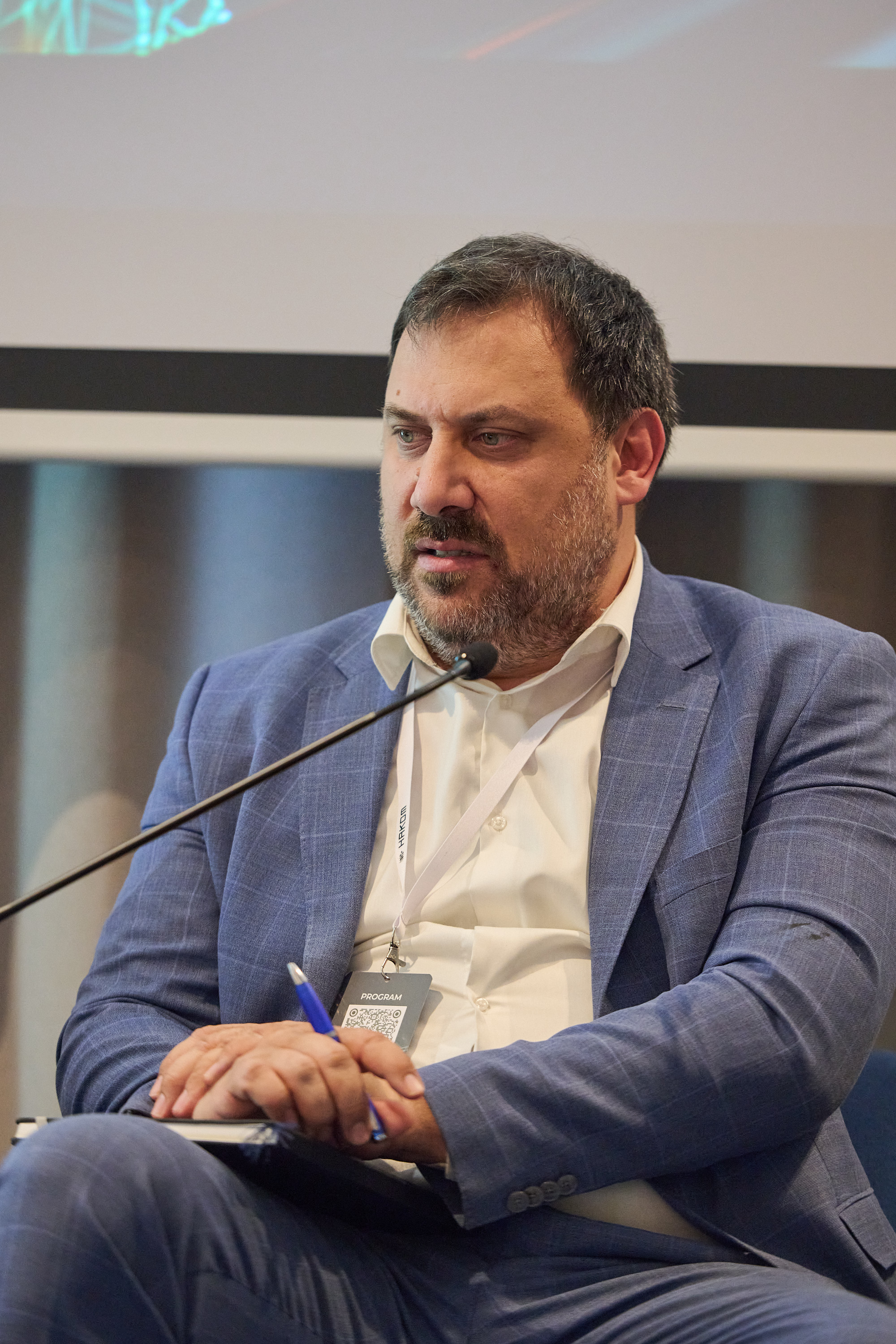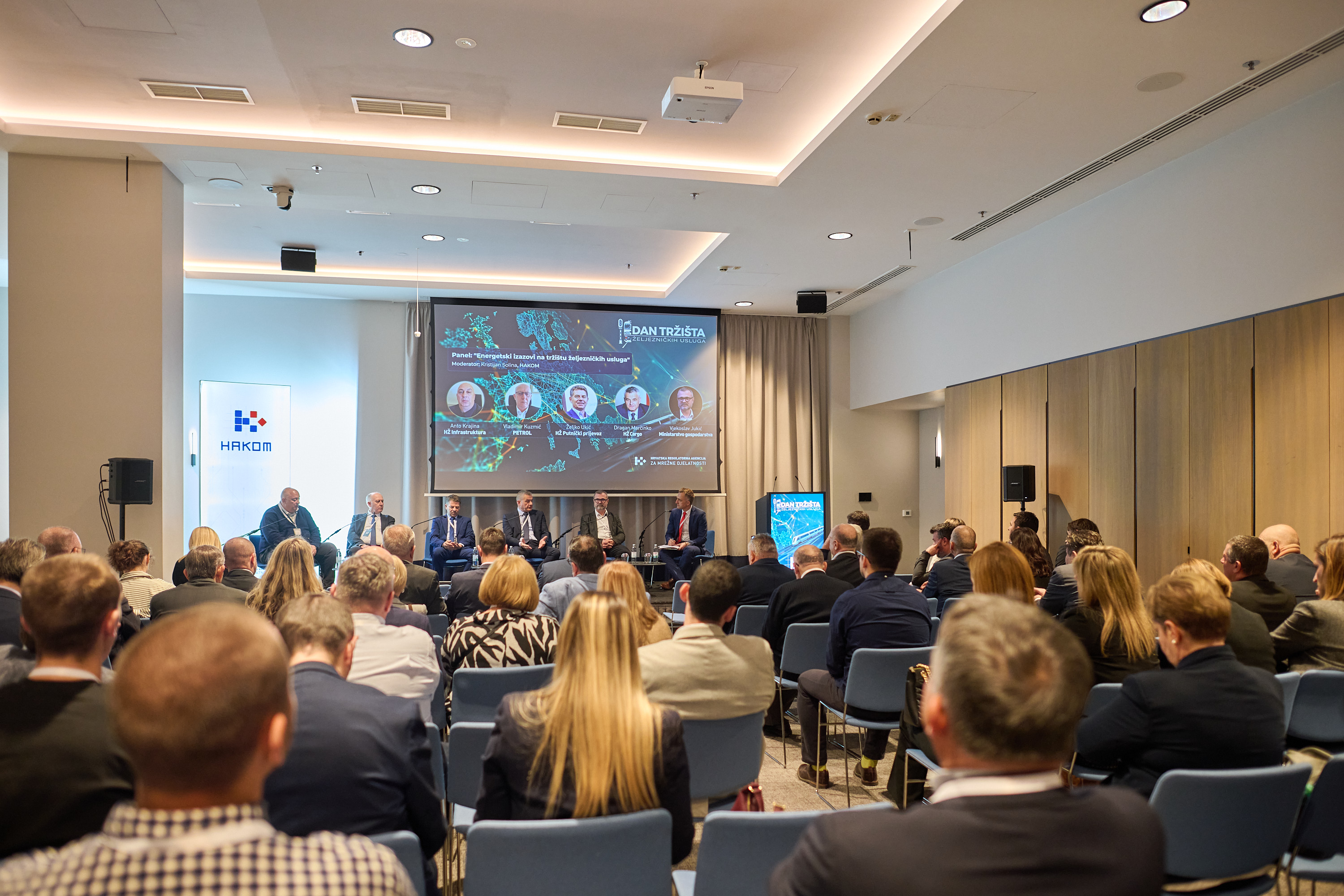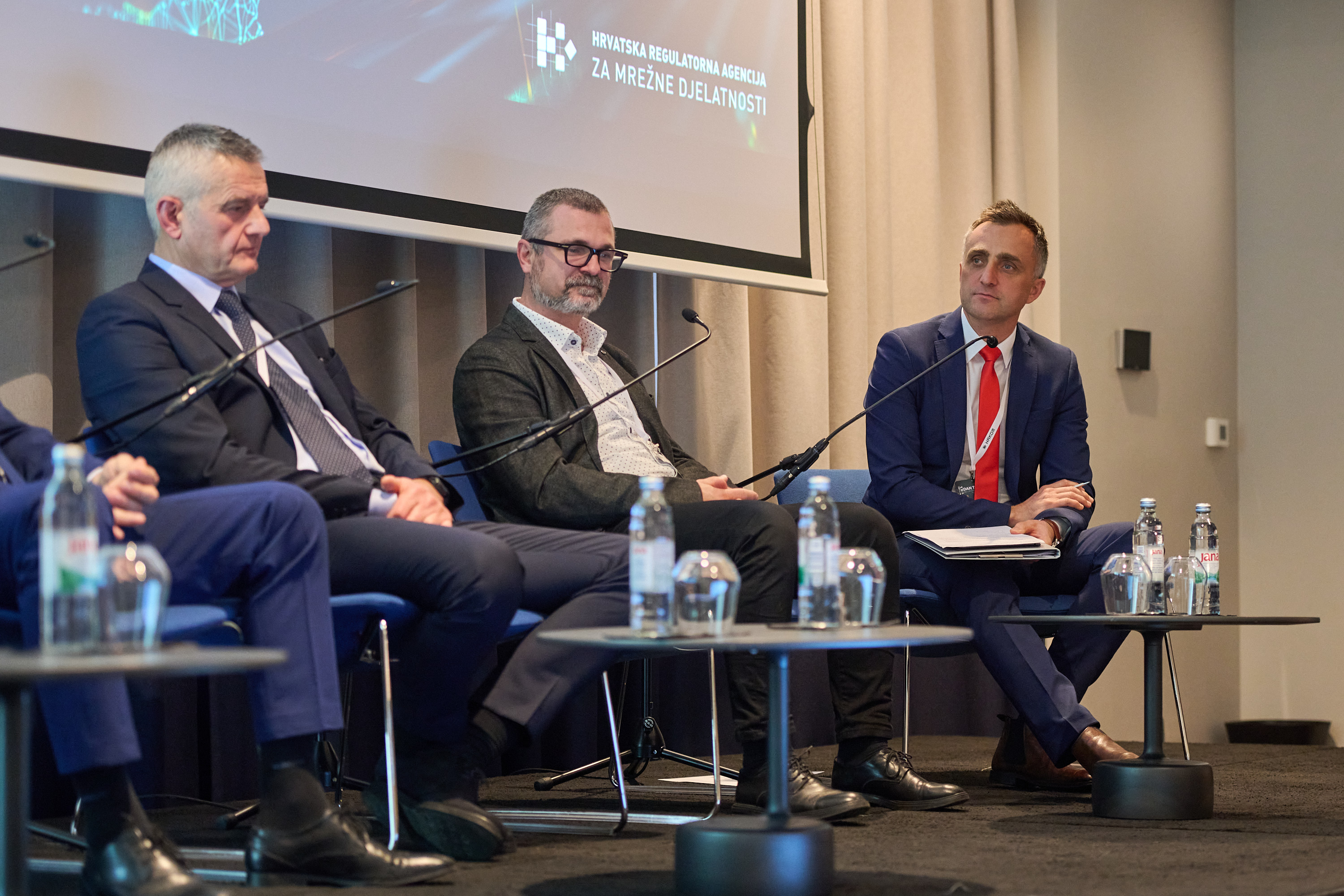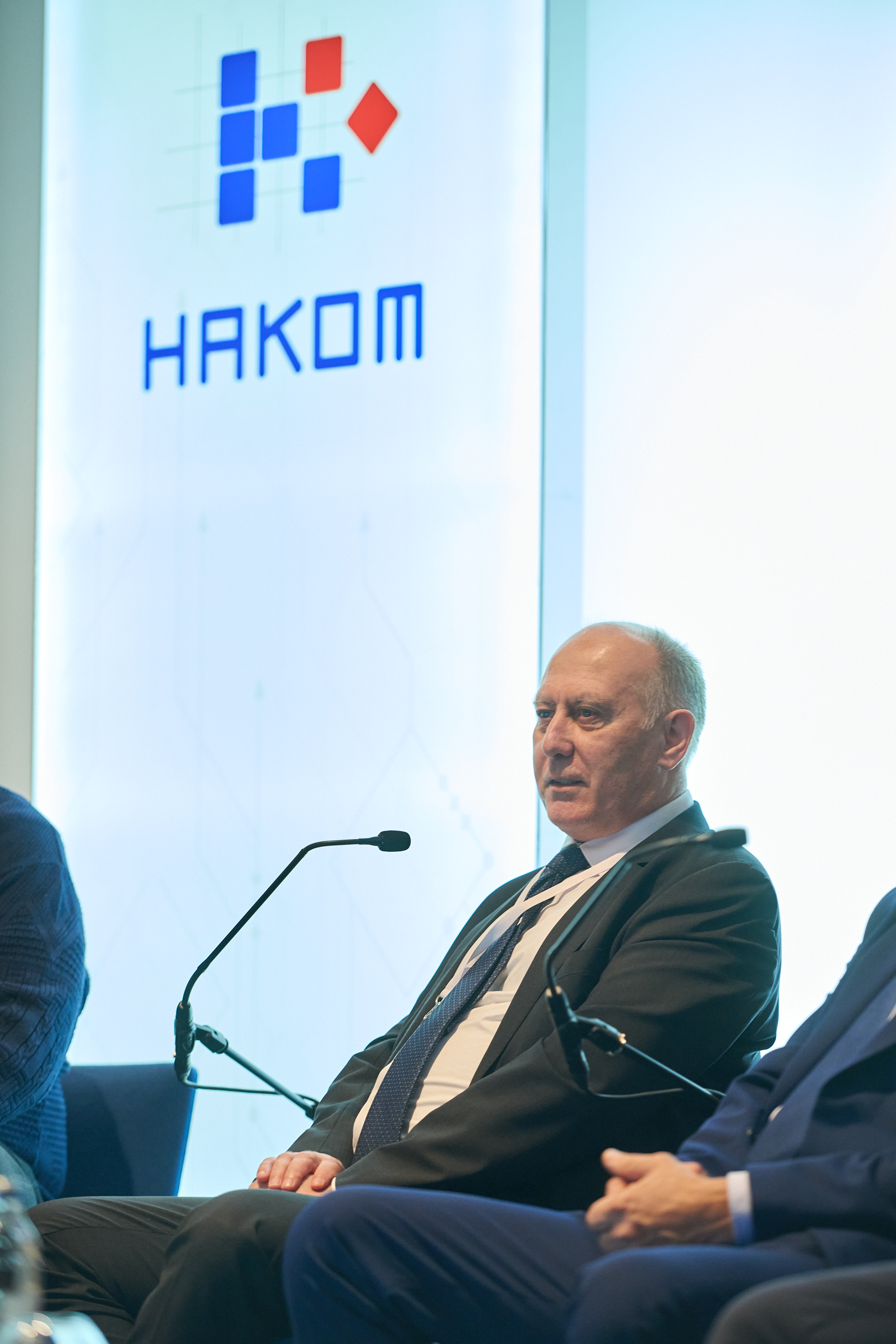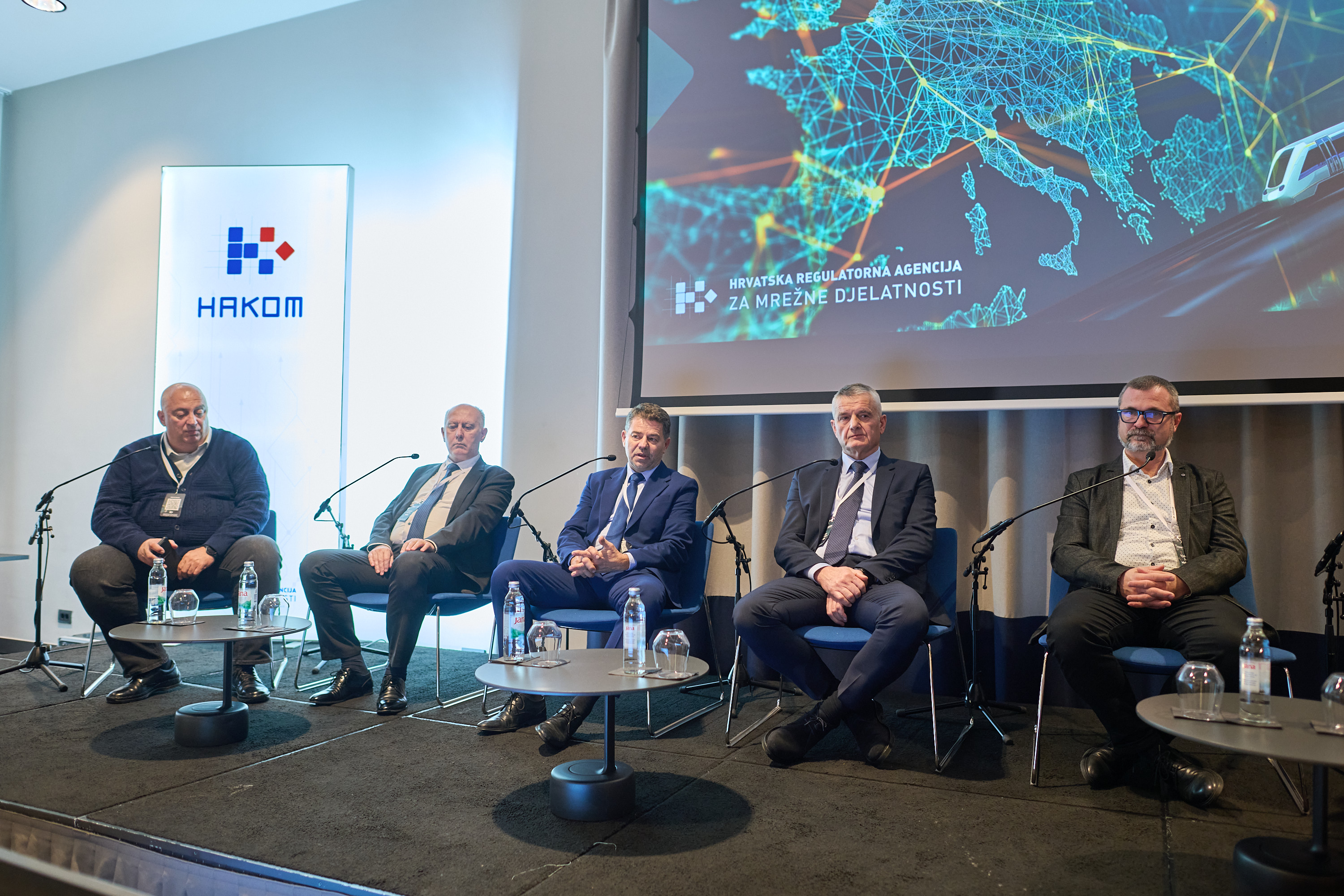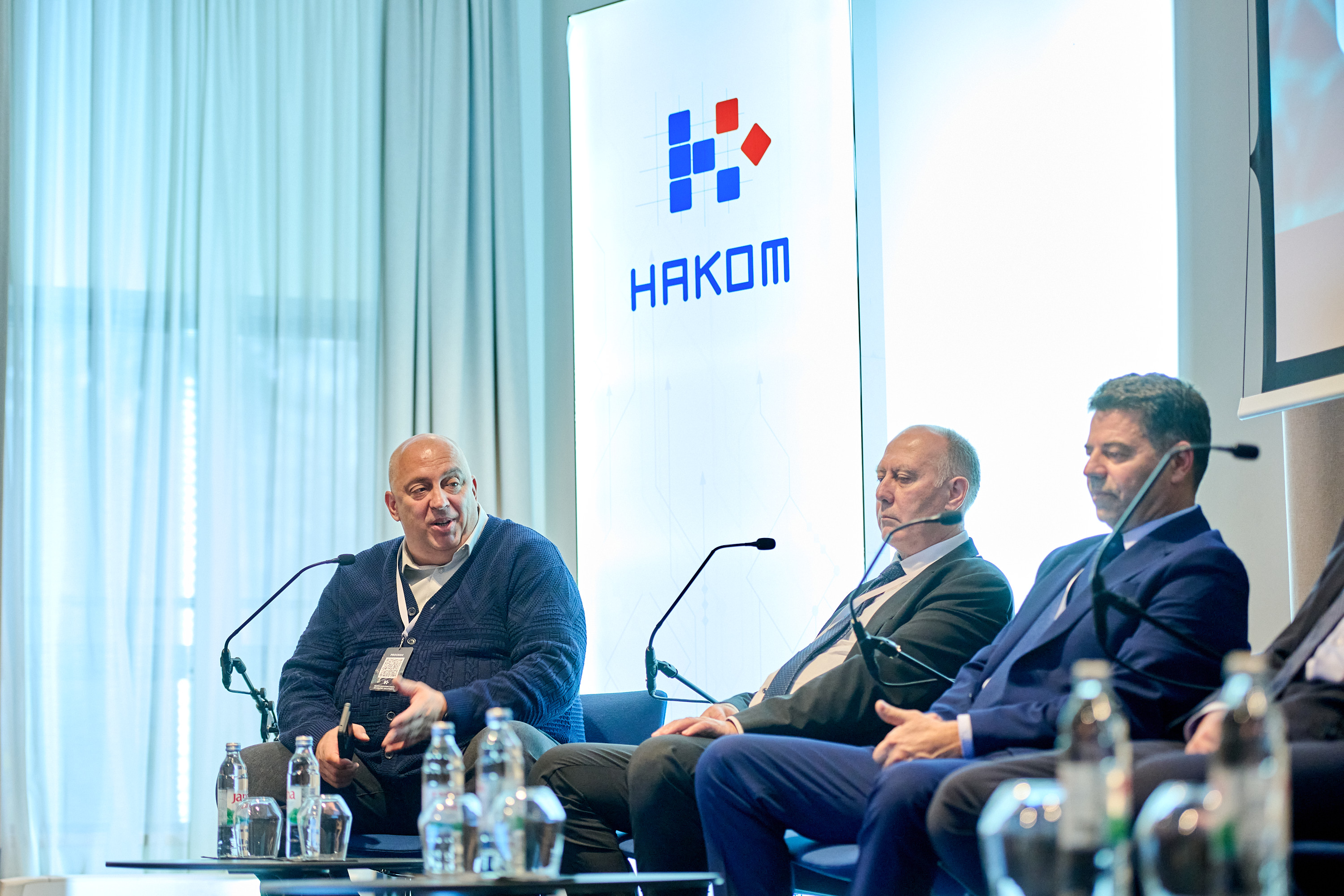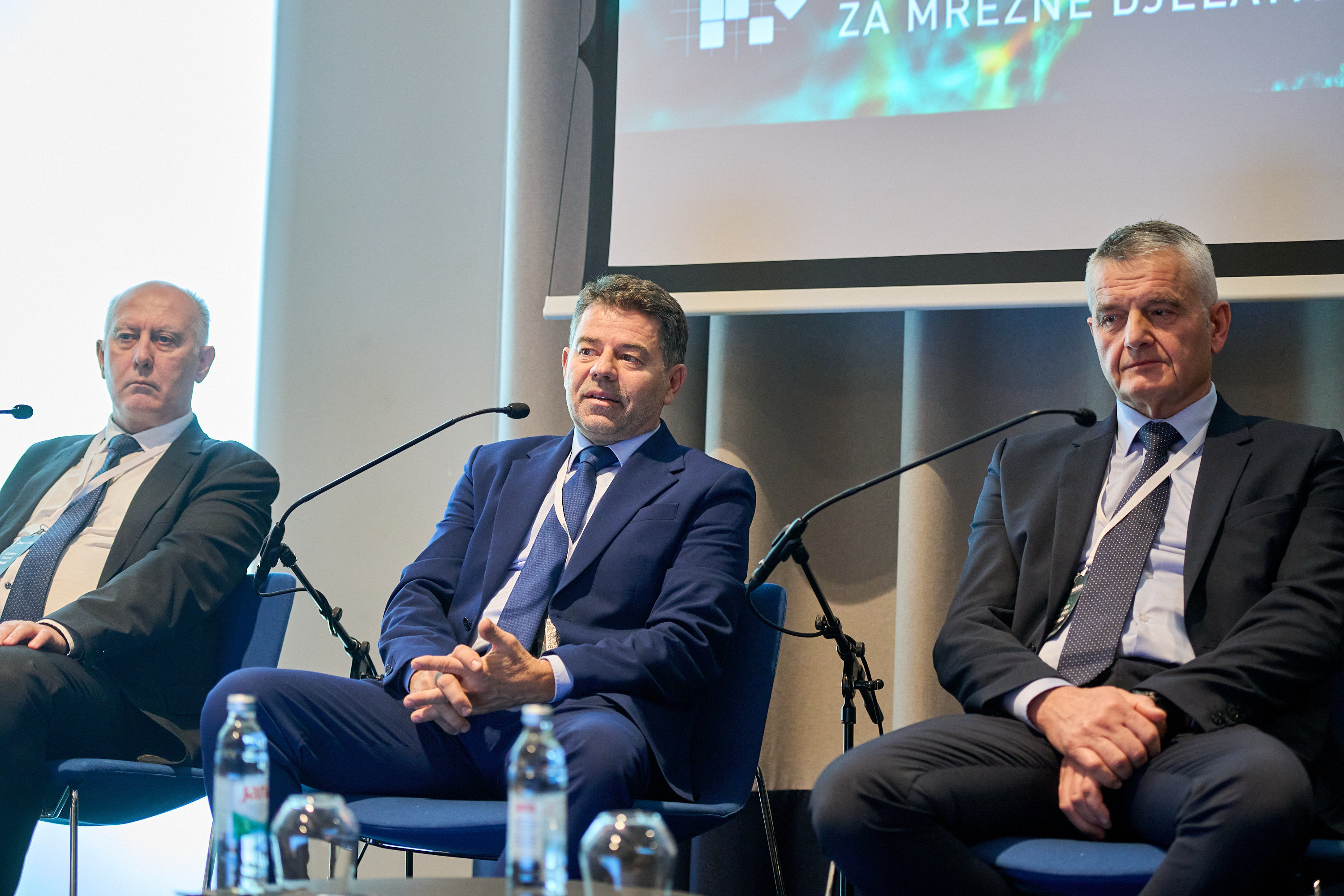HAKOM Hosts Railway Services Market Day
ZAGREB, 26 November 2025 - Amid global changes in transport and logistics, the activation of European Union transport corridors and the management of energy costs are crucial for railway competitiveness, economic development, and the green transition. These topics were addressed during two panel discussions at the Railway Services Market Day, an event traditionally organised annually by HAKOM.
The conference brought together entrepreneurs, stakeholders from the railway services market, railway experts, and members of the academic community. Opening the event, Nikola Popović, Member of the HAKOM Council, welcomed participants and emphasised that HAKOM monitors market challenges within its remit. He highlighted that the conference provides a forum to discuss current issues in the provision of railway services. The exchange of knowledge, experience, and expert insights contributes to a clearer understanding of how the railway corridors passing through Croatia can become stronger drivers of economic growth and how the national railway system can be made more resilient to future energy challenges.
Strengthening International Connectivity
The first panel, entitled “Expansion of the TEN-T Network and Its Significance for Croatia”, focused on the competitiveness of railways relative to road transport and the benefits of transport corridors for Croatia. Panelists included Tihomir Španić, Infrastructure Manager at the Alpine-Western Balkan Rail Freight Corridor economic interest group; Borna Abramović, Full Professor at the Faculty of Transport and Traffic Sciences; Andrija Petrović, Project Manager of Varaždin Gateway - Intermodal HUB at KOS Transporti; and Marko Boban, Head of Strategic Planning and Project Development at the Ministry of the Sea, Transport and Infrastructure. Ana Katalinić Mucalo, Assistant Director at HAKOM, moderated the discussion.
Owing to its geostrategic location, Croatia lies on four of the nine European corridors forming part of the Trans-European Transport Network (TEN-T), which encompasses 106,000 km of railway lines. EU plans envisage that the core network, linking major cities and transport hubs, should be completed by 2030, with the extended core network finalised ten years later. The comprehensive network, connecting all EU regions to the core network, is scheduled for completion by 2050.
Panel participants highlighted that the development of corridors promotes efficient transport of both passengers and goods, improves access to jobs and services, and supports trade and economic growth. In turn, this strengthens the EU’s economic, social, and territorial cohesion while creating seamless cross-border transport systems. Corridor development also aims to reduce the environmental and climate impact of transport and to enhance the safety and resilience of the railway network.
Rising Energy Costs and Their Effect on Railway Operations
In The current context of energy and climate challenges in Europe and globally, energy issues in railways are strategic, as they determine the competitiveness of rail compared with road and other modes of transport and its contribution to reducing emissions in line with EU climate targets. The second panel, titled “Energy Challenges in the Railway Services Market”, included Vjekoslav Jukić, Head of the Energy Policy and Planning Sector at the Ministry of Economy; Anto Krajina, Director of the Infrastructure Access Sector at HŽ Infrastruktura; Dragan Marčinko, CEO of HŽ Cargo; Vladimir Kuzmić, Director of the Wholesale Sector at Petrol; and Željko Ukić, CEO of HŽ Passenger Transport. Kristijan Solina, Head of the Railway Services Sector at HAKOM, moderated the panel discussion.
Panel participants highlighted that, over the past two years, European freight transport—including in Croatia—has seen a significant decline, primarily due to high-energy prices and frequent track closures for maintenance and modernisation. The discussion also noted the potential for businesses to install self-supply capacities or utilise their own energy sources, offering opportunities for cost savings, growth, and greater resilience to rising fuel prices. Modernising transport through the phase-out of diesel, further electrification, and the adoption of battery-powered trains alongside hydrogen as an alternative is expected to enhance energy price stability, support environmental decarbonisation, and strengthen the green transition.
For additional information please contact:
Croatian Regulatory Authority for Network Industries (HAKOM)
- Roberta Frangeša-Mihanovića 9 Street
- 10110 Zagreb, Croatia
- Tel. + 385 (0) 1 700 70 07
- Fax + 385 (0)1 700 70 70
Media inquiries can be submitted online using HAKOM’s official website: www.hakom.hr
About Hakom
HAKOM - Croatian Regulatory Authority for Network Industries – ensures preconditions for a fair market competition, stable growth and environment for innovations in the electronic communications and postal services market. HAKOM protects users’ interests and the possibility of choice among various communications and postal services at affordable prices, defines sustainable competitive conditions for operators and service providers under fair conditions for return on investment, and provides support to economic growth, public services and the quality of life in the Republic of Croatia by using modern technologies. HAKOM’ strategic goals are: to promote regulation of the electronic communications and postal services market, to support growth of investments and innovations in the electronic communications and postal services market, to provide efficient use of limited resources, to accelerate the growth of broadband products and services, to provide affordable offers of communications and postal services, to provide protection and informing of users, to build an efficient and comprehensive information system, to define and implement efficient processes, and to acquire multi-disciplinary expertise in market regulation.

